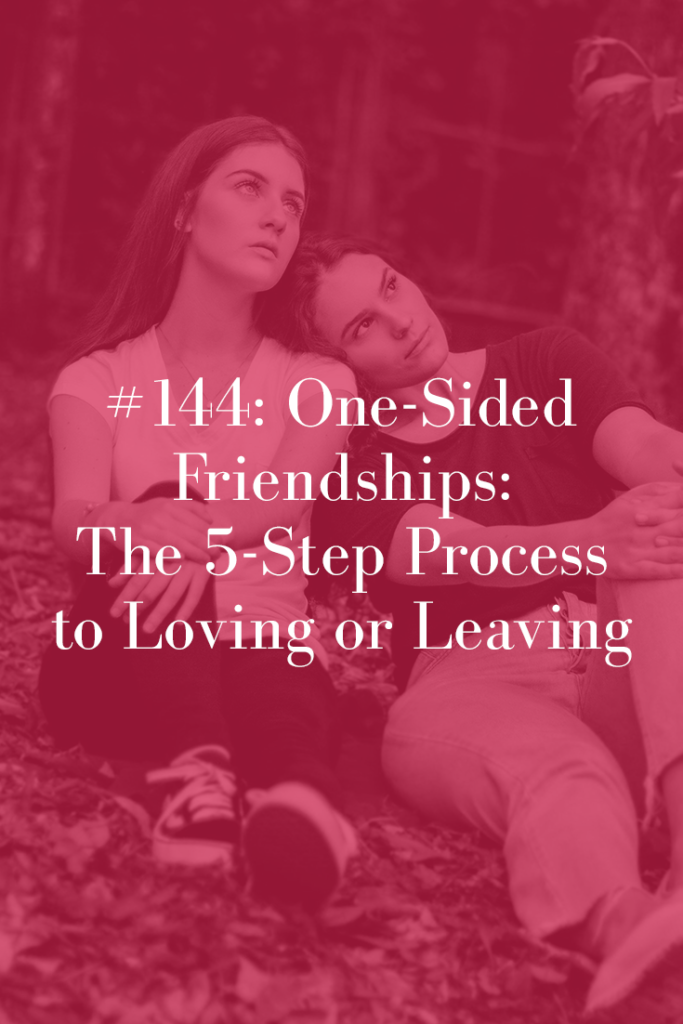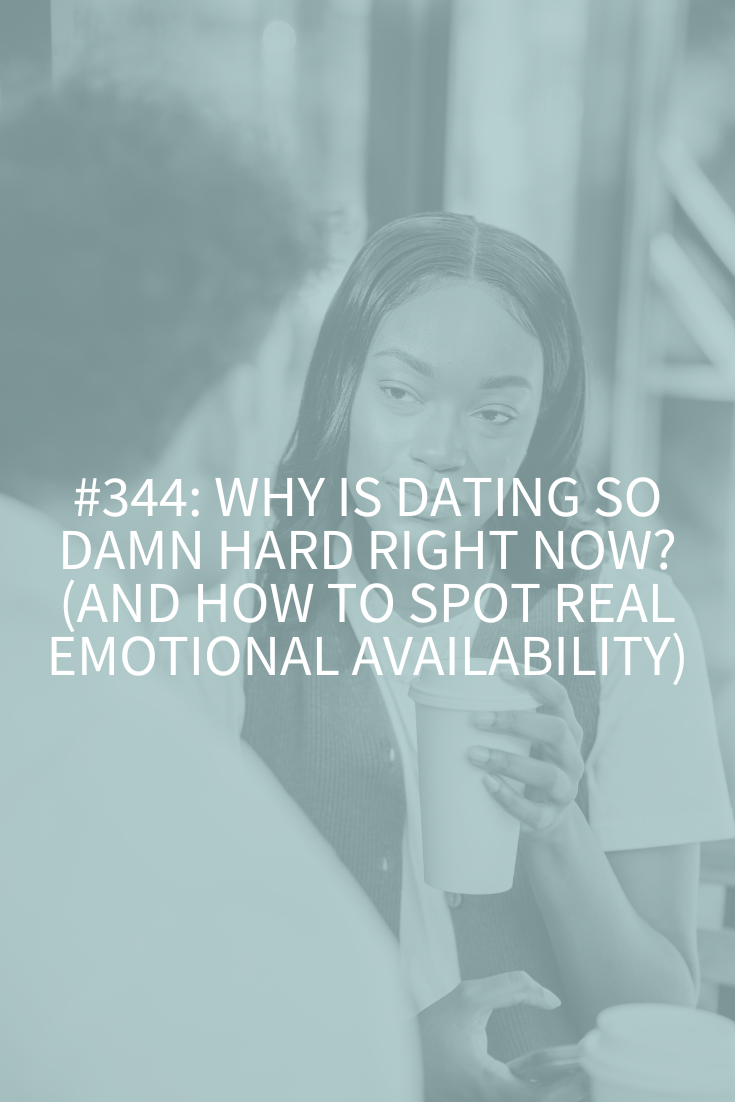
Want to read the more in-depth version? Click here to read the blog!
Do you have a friend who you’re always there for but, when you’re in need, they ghost you or offer minimal energy or support? Basically, are you in a one-sided friendship where it’s always all about them? Maybe you’ve been friends for years and you just want things to be more equal. Or maybe you don’t want to be friends anymore but can’t figure out how to leave without all the drama. Either way, I’ve got you covered so stay tuned!
Love the podcast? I’d be so grateful if you left a review! Just launch Apple’s Podcast app on your mobile device, search for the Relationships Made Easy podcast, and scroll down to rate and review!
Signs of a One-Sided Friendship:
- You’re always there for them but, when you need something they either show only minimal interest or they ghost you completely.
- They’re an emotional vampire. You leave conversations feeling drained.
- They might ask you how you’re doing but lose interest right away. If you don’t speak fast and get to the point quickly, they move the conversation back to them.
- When you bring up an issue you need help with, they give you two-word comments and quickly bring the conversation back to themselves.
- It’s clear to you that they’ll cancel in a moment’s notice if something better comes along or if their mood shifts. Or lots of plans with them feel tentative and they don’t follow through with finalizing things with you.
- They often dismiss things you say, minimize your feelings or act condescending and superior with you. The message: you don’t matter as much as them.
- After you’ve spent time together you might notice that your self-esteem has taken a hit. You don’t feel built up by them. Instead, you feel torn down and doubting yourself.
- You’ve noticed that when you’re having a hard time, they almost seem to be enjoying it. Or they show no empathy. They say things like, “I told you not to get involved with that guy” or “I tried to warn you, you’ve got no one to blame but yourself.”
You might have already tried to speak to them about this issue in your friendship and one of these things happened:
- They got angry and defensive and the conversation ended up being about how you’re the bad friend, not them.
- They promised to make changes (maybe they even showed up for you a couple times), but then they reverted back to old behavior.
So What Do I Do, Abby?
Step 1: Figure Out Your Why
You need to have an honest conversation with yourself about why you stay. It’s time to get very real about your relationship with this person. Why do you hang on? What are you really getting out of it? You’re going to need to dig deep here and there might be some harsh truths you need to face.
Step 2: Track Your Feelings
The big issue is that you’ve been minimizing your needs and taking blame for things you shouldn’t. After each interaction with this friend, track how you feel. You can write down an actual feeling or make it really simple, with a scale of 1 to 6 with 1 feeling drained, alone, resentful and frustrated and 6 being uplifted, nourished, connected and loved after any type of interaction with them.
Step 3: Talk to Them
Now that you’re clear about why you stay and how you feel, it’s time to do something inside the friendship.
- First, be honest and talk to them about how you feel using the I Feel Formula (you can download it on this page – see below).
- Don’t blame or criticize but be clear and forward about what’s happening for you.
- Have a plan ready for next steps. For example, maybe you set a timer when you each speak for a while. Maybe you set up ground rules like no interrupting or calling out dismissive language. Maybe you have a code word for when you’re feeling dismissed.
Step 4: When to Stay
If the friendship slips back into old, negative patterns say something. You can refine or remind what you agreed to or come up with a new action plan.
Step 5: If it’s Time to Move On
If you’ve done everything you can and this person just won’t make consistent changes and you still walk away with those yucky feelings after interactions, you’ve got to put on your big girl/boy pants and move on.
There are two ways to do this, depending on the friendship and your ability to draw boundaries.
- Just slowly disappear from their life. If they’re not getting what they want, they’ll move on to someone else.
- Ask to meet for coffee and let them know up front that you need to discuss some thoughts and feelings you’re having about your friendship. Get into a loving state and perhaps tell them how much this friendship has meant to you and how hard this decision has been. Do not get into an argument and be very clear about how you’re leaving things (i.e., don’t try to soften the blow). Be firm with your boundaries. If they continue to ask why or push, end the conversation.
You are not responsible for their reaction to all this. It’s likely that they’ll be upset or angry with you. You can only keep your side of the street clean. Make sure you’re coming from love, not fear and that’s all you can do.
RESOURCES
Boundaries: How to Make Them, How to Hold Them
How to Say “No” and Stick to It
8 Ways to Build Your Confidence and Self-Esteem
The Secret to Making Boundaries, Not Walls
Enter your name and email below to grab the “I Feel Formula”!
Ready to find out what goes on inside that crazy mind of Abby’s?
Get your weekly newsletter with all things Abby and life
Subscribe today to get my weekly thoughts, best practices and funny stories (you won’t believe my life!). This weekly reminder will keep you on the path to creating connected, happy relationships (especially the one with yourself)!












